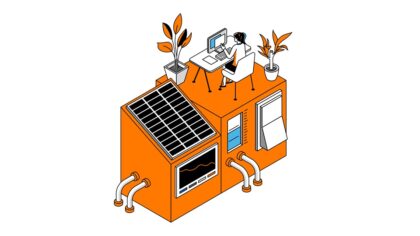AI's environmental footprint: understanding, measuring, acting
Artificial intelligence (AI) has fascinating capabilities, but crucial questions surround its environmental impact.
In order to more accurately identify its impact, we need the ability and knowledge to measure it. That is no small task. Moreover, there are as-yet-unresolved challenges in researching AI’s energy consumption. Generative AI sets itself apart from other digital services by the significantly greater computing power it requires: for instance, the training of models can take several weeks and involve tens of thousands of GPUs.
Read the article
In order to more accurately identify its impact, we need the ability and knowledge to measure it. That is no small task. Moreover, there are as-yet-unresolved challenges in researching AI’s energy consumption. Generative AI sets itself apart from other digital services by the significantly greater computing power it requires: for instance, the training of models can take several weeks and involve tens of thousands of GPUs.


Massive MIMO, Cloud RAN, and AI for future networks — Joint trials by Orange France and Ericsson
Read the article




